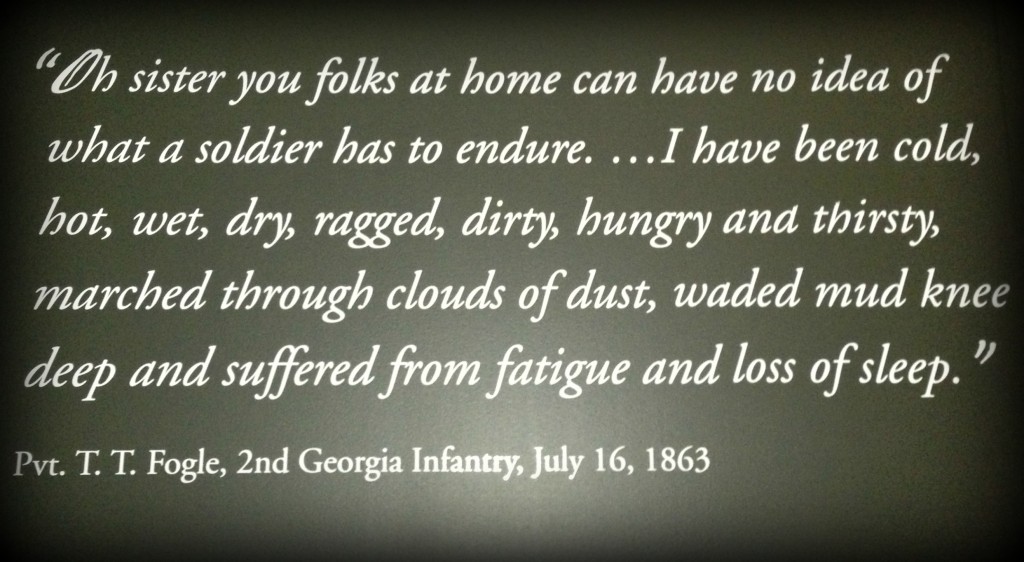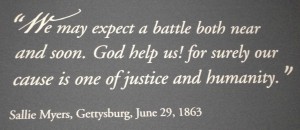Wednesday Wisdom: The Discipline of Our Thoughts
This week’s Wednesday Wisdom comes from John MacArthur, one of my very favorite resources for biblical teaching. All of his sermons are available for free download from his website Grace to You (gty.org) and I highly recommend them. He has really helped me grow in my understanding of God’s Word. The portion I present here today is from the blog that is found on the Grace to You website. It’s about just how incredibly powerful our thought life is (something we often forget)–
Do you realize that the difference between a sincere, Spirit‑controlled, devoted, godly, obedient Christian and a defeated, weak, struggling Christian is what takes place in the mind? They may be attending the same church, active in the same ministries, and externally doing the same things, but one is defeated and the other lives a spiritually fruitful life. The difference is the thought life.
One day the difference will be made manifest. Paul told the Corinthians that when the Lord comes, He “will both bring to light the things hidden in the darkness and disclose the motives of men’s hearts” (1 Corinthians 4:5). Jesus said something similar: “Nothing is hidden that will not become evident, nor anything secret that shall not be known and come to light” (Luke 8:17). And, “Beware of the leaven of the Pharisees, which is hypocrisy. But there is nothing covered up that will not be revealed, and hidden that will not be known” (Luke 12:1-2).
I urge you to look deeply into the mirror of God’s Word (James 1:23-24), which is a powerful “discerner of the thoughts and intents of the heart” (Hebrews 4:12, KJV). As Jeremiah counseled Israel, “Wash your heart from evil, O Jerusalem, that you may be saved. How long will your wicked thoughts lodge within you?” (Jeremiah 4:14). And as Paul said, “let us cleanse ourselves from all defilement of flesh and spirit, perfecting holiness in the fear of God” (2 Corinthians 7:1).
How can we deal with the problem of evil thoughts? The process is like mortifying any other sin.
First, confess and forsake the sin. “Let the wicked forsake his way, and the unrighteous man his thoughts; and let him return to the Lord, and He will have compassion on him; and to our God, for He will abundantly pardon” (Isaiah 55:7, emphasis added). If your thought life harbors sins of immorality, sins of anger toward someone, sins of vengeance, sins of bitterness, sins of covetousness, or whatever, confess them to God. Repent and ask forgiveness. If we confess, He is faithful and just to forgive and keep on cleansing (1 John 1:9).
Refuse to entertain those thoughts. Purpose to abandon your wrong thought patterns immediately and begin to build new, righteous habits. If you find yourself slipping into old ways of thinking, confess your sin and refuse once again to give place to evil thoughts. Consciously direct your mind to fix itself on pure things: “Whatever is true, whatever is honorable, whatever is right, whatever is pure, whatever is lovely, whatever is of good repute, if there is any excellence and if anything worthy of praise, dwell on these things” (Philippians 4:8). In other words, reprogram your mind with truth and righteousness.
Feed on the Word of God. “Your word I have treasured in my heart, that I may not sin against You” (Psalm 119:11). The Word insulates the mind. It strengthens the heart. It occupies the soul and fortifies it against evil thoughts. Only as we use the sword of the Spirit skillfully can we mortify our fleshly imaginations (Ephesians 6:17).
Avoid evil attractions. Don’t expose yourself to activities, images, or conversations that provoke evil thoughts. Like Job, make a covenant with your eyes (Job 31:1)—or with your ears, or with whatever sensations lead you into evil thoughts. Refuse to feed any tendencies that draw your imagination into wickedness. This is what Jesus meant figuratively when he said, “If your right eye makes you stumble, tear it out and throw it from you; for it is better for you to lose one of the parts of your body, than for your whole body to be thrown into hell. If your right hand makes you stumble, cut it off and throw it from you; for it is better for you to lose one of the parts of your body, than for your whole body to go into hell” (Matthew 5:29-30).
Cultivate the love of God. David said in Psalm 119:97, “O how I love Your law! It is my meditation all the day.” And then four verses later he said, “I have restrained my feet from every evil way.” If we set our minds on things above, things on the earth will cease to hold the same fascination for us (Colossians 3:2). “Where your treasure is, there your heart will be also” (Matthew 6:21)—and where your affections are set, your thoughts will be there as well.
David ended Psalm 19, his great paean to the sufficiency of Scripture, with these words:
Who can discern his errors? Acquit me of hidden faults. Also keep back Your servant from presumptuous sins; let them not rule over me; then I will be blameless, and I shall be acquitted of great transgression. Let the words of my mouth and the meditation of my heart be acceptable in Your sight, O Lord, my rock and my Redeemer (vv. 12-14).
That is the state of mind of every truly godly person. It is also the goal of biblical instruction: “love from a pure heart and a good conscience and a sincere faith” (1 Timothy 1:5).
So, how’s your thought life?
You can find this post here, along with many other helpful resources.





